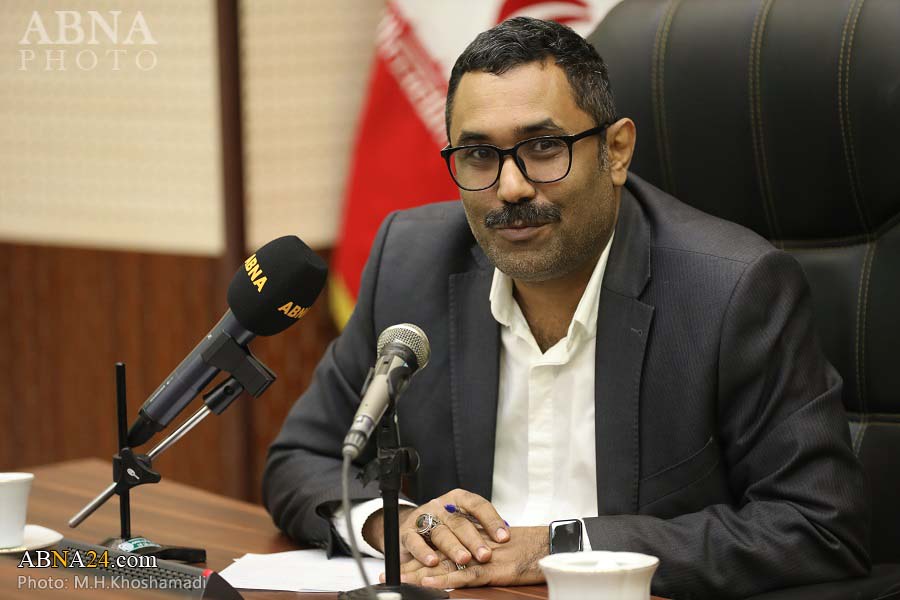AhlulBayt News Agency (ABNA): Dr. Abdulrahman Al-Rajeh, an expert on Yemeni affairs, speaking at the international conference “The Yemeni Resistance and International Security: A Look at the Current Regional Situation” held by the AhlulBayt (a.s.) World Assembly, pointed to Yemen’s history and said, “Yemen has a long history of resistance, with its culture of resistance dating back to the early days of Islam. This resistance has continued throughout history. Yemen was the first country to break free from Ottoman rule, and Zaydi imams in Yemen played a significant role in resisting colonial powers.”
“Yemen’s resistance is robust, strong, and courageous. The world watches in awe as Yemen’s armed forces carry out operations in the Red Sea, targeting the U.S. military and the occupied territories. Since the start of Operation Al-Aqsa Flood, Yemeni resistance forces have conducted around 300 to 400 operations, including direct attacks on U.S. Navy warships by Yemeni armed forces,” he continued.
“Without the ideology of resistance in Yemen, this country would have remained indifferent to developments in Palestine, like Saudi Arabia. Without the strength, resilience, courage, and unwavering faith of Sayed Abdul-Malik Al-Houthi and the leaders of the Ansarullah movement in Yemen, these events were impossible. Before Yemen’s revolution, the Ansarullah movement endured six wars. After each conflict, the territory under their control expanded. This culminated in the Yemeni revolution and Ansarullah’s entry into the capital, Sana’a. Subsequently, Yemen witnessed Saudi Arabia’s all-out war, but Sayed Abdul-Malik Al-Houthi, the leader of Ansarullah, stood firm, thwarting Saudi Arabia’s plans. Ultimately, Operation Al-Aqsa Flood drew Yemen’s armed forces to launch operations against the U.S. and the Zionist regime,” Dr. Al-Rajeh added.
Referring to Yemen’s national unity, the expert on Yemeni issues remarked, “Sayed Abdul-Malik Al-Houthi, the leader of Ansarullah, successfully unified Yemen’s tribes. These tribes, which had previously been plagued by conflicts and divisions, were brought together under his leadership to resist Saudi aggression. Later, they were mobilized to defend Palestine during Operation Al-Aqsa Flood. The Yemeni people, driven by their beliefs, have been participating in widespread demonstrations every week in support of Palestine across various cities, including Sana’a and Saada.”
He went on to say, “Yemen, once forgotten and reduced to Saudi Arabia’s backyard, now plays a significant role in global resistance, and developments in Yemen have become important for everyone, including the Zionists. The Zionist regime has been surprised by the attacks of Yemen’s armed forces.”
Dr. Al-Rajeh further stated that international security is a Western concept, adding, “From a Western perspective, international security in Yemen revolves around issues like Al-Qaeda and maritime security. The West did not want its security in the Bab al-Mandeb Strait to be threatened. For eight years during Saudi Arabia’s war on Yemen, Yemenis refrained from using the Red Sea and Bab al-Mandeb card. It was only after Operation Al-Aqsa Flood, and in defense of the Palestinians, that they resorted to this approach.”
Highlighting the necessity of maintaining Yemen’s security, the Yemeni affairs expert said, “Sayed Abdul-Malik Al-Houthi, the leader of Ansarullah, has repeatedly emphasized that we are committed to ensuring international security only when Yemen’s security is preserved. Today, Yemen’s resistance is stronger than ever.”
**************
End/ 345

